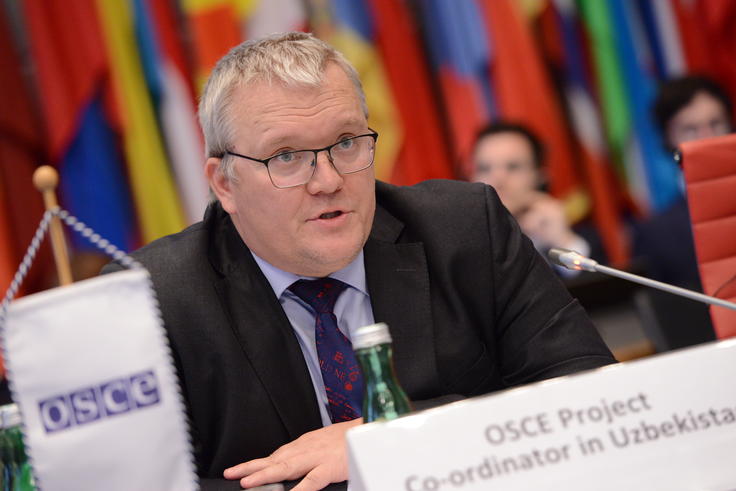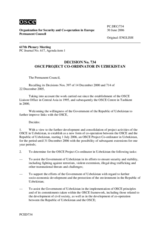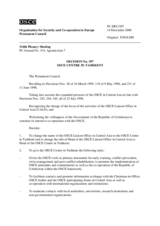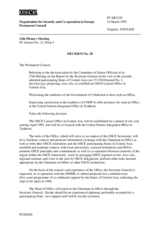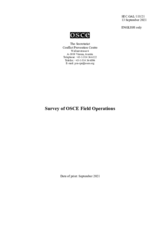About us
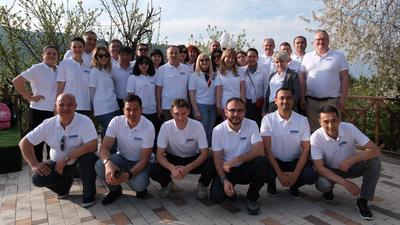
The Project Co-ordinator in Uzbekistan, based in Tashkent, implements programmes and projects that support the country’s reform agenda and development efforts in line with OSCE principles and commitments. The Office works in close partnership with the government of Uzbekistan, state institutions and civil society to promote security, sustainable development and good governance.

Overview
The Project Co-ordinator is mandated to assist Uzbekistan in its efforts to ensure security and stability, including the fight against terrorism, violent extremism, drug trafficking and other threats; to support the country’s socio-economic and civil society development; to help protect the country’s environment; and to assist the government in the implementation of its commitments taken within the OSCE framework, including those related to the development of civil society. The Co-ordinator’s activities are carried out on the basis of jointly developed programmes and projects.
Figures
The Project Co-ordinator's offices, staff and budget at a glance
Offices
1 office
The Project Co-ordinator's office is located in Uzbekistan's capital, Tashkent.
Staff
36 FIXED-TERM STAFF
The Co-ordinator has 3 international and 33 local fixed-term staff (as of 31 December 2024). These figures include staff financed from extrabudgetary contributions.
Budget
€2,499,200
In 2024, the Project Co-ordinator operated on the basis of a Provisional Expenditure Authorization based on its 2021 Unified Budget, which amounted to €2,499,200. The extrabudgetary actual expenditure for 2024 was €64,766.
Leadership
The OSCE Project Co-ordinator in Uzbekistan
History and mandate
Established on 1 July 2006 by the Permanent Council
Established on 1 July 2006 by Permanent Council Decision No. 734 (30 June 2006), the OSCE Project Co-ordinator in Uzbekistan succeeded the former OSCE Centre in Tashkent with a renewed, project-based mandate. Operating in close partnership with the government of Uzbekistan, state institutions and civil society, the Project Co-ordinator assists the country in implementing OSCE principles and commitments across the politico-military, economic and environmental, and human dimensions of security. Through its initiatives, the Project Co-ordinator supports Uzbekistan’s ongoing reform agenda, stability and sustainable development, in line with the OSCE’s comprehensive approach to security.
Previous field operations in Uzbekistan
The OSCE Centre in Tashkent, which preceded the OSCE Project Co-ordinator in Uzbekistan, was formed by Permanent Council Decision No. 397 adopted on 14 December 2000. This Decision transformed the former OSCE Liaison Office in Central Asia into the Centre in Tashkent, providing it with an expanded and more clearly defined mandate. The Centre was tasked with promoting the implementation of OSCE principles and commitments and supporting Uzbekistan’s active co-operation within the OSCE framework. It was also mandated to facilitate contacts and information exchange with the OSCE Chair, institutions and participating States in Central Asia, as well as with international organizations and institutions; to strengthen partnerships with national and local authorities, academic and research institutions, and civil society; to assist in the organization of OSCE events, seminars and visits; and to liaise closely with other OSCE operations in the region. The Centre could also undertake additional tasks as requested by the OSCE Chair or other OSCE bodies, in agreement with the government of Uzbekistan, thereby contributing to enhanced regional dialogue, stability and co-operation.
The Liaison Office in Central Asia, also based in Tashkent, was established on 16 March 1995 by Permanent Council Decision No. 28. The decision detailed that the Office would be co-located with the United Nations Integrated Office in Tashkent and would be established for an initial period of one year, from April 1995 onwards. It was mandated to serve as an outpost of the OSCE Secretariat and a hub for regional engagement. Its tasks included promoting OSCE principles and commitments; fostering co-operation and information exchange among the Central Asian participating States, the OSCE Chair, institutions and other participating States; maintaining close links with government bodies, universities, research institutions and civil society; assisting in the organization of OSCE seminars, conferences and visits; and carrying out additional tasks assigned by the OSCE Chair or other OSCE bodies in support of regional dialogue, security and development.
Resources
Official OSCE documents and publications from the Project Co-ordinator in Uzbekistan
